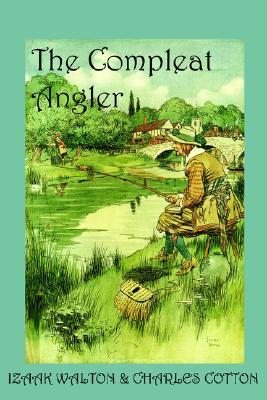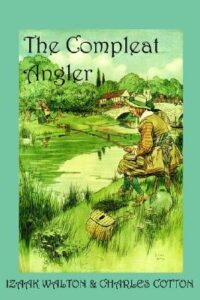Chapter III — The Compleat Angler
byChapter III – The Compleat Angler unfolds with Piscator challenging the prevailing notion that the Chub is an inferior fish. Rather than dismiss it for its many bones or bland taste, he insists it can be quite flavorful when prepared properly. The Chub is often overlooked, but Piscator sees its potential when treated with care and knowledge. He details two cooking methods. One involves roasting with a mix of herbs, verjuice or vinegar, and butter to create a firm texture. The other method suggests grilling with butter, salt, and thyme, which elevates its flavor and reduces the watery taste. Cleaning the fish thoroughly, especially the throat area, is vital to avoid unpleasant flavors. Piscator draws a vivid comparison, stating that a fresh Chub is as superior to a neglected one as fresh-picked cherries are to bruised fruit soaked in water. Such culinary techniques help reevaluate common assumptions about this undervalued fish.
After the culinary discussion, the chapter shifts to the stream, where Piscator puts theory into practice. He asks Venator to try catching a Chub using grasshoppers as bait—a simple yet effective technique. The strategy relies on stealth and patience, as Chubs are cautious and easily startled. Piscator stresses the importance of quiet approach and natural bait presentation. These practical instructions give Venator, a beginner, a real opportunity to succeed. When he finally hooks a Chub, the moment is one of shared celebration, reinforcing that success in fishing comes from both knowledge and method. Piscator’s mentorship takes center stage here. He is not just imparting techniques but also encouraging curiosity, calm, and mindfulness in nature. The act of catching a fish becomes a metaphor for personal growth through hands-on learning.
Piscator adds depth by suggesting alternative baits, which helps tailor the angler’s strategy to different seasons and fish behaviors. Worms, cheese, and snails are cited as equally viable options. Each bait choice, he explains, has advantages depending on weather and water conditions. This practical adaptability reflects the larger theme of harmony with nature. Rather than imposing rigid rules, angling is portrayed as responsive and flexible. The classification of Chub as a “leather-mouthed fish” further emphasizes the technical considerations of fishing. Their teeth being in the throat makes them easier to hook, providing beginners a better chance of success. Piscator’s knowledge is rooted in observation and thoughtful adaptation, which he generously passes on. This mix of empirical insight and hands-on application makes the narrative both instructional and engaging.
The ethical dimension of angling subtly emerges as Piscator encourages Venator to donate his first catch to the poor. This action frames fishing not merely as a sport, but as an opportunity for benevolence. Piscator blends skill with social consciousness, positioning angling within a broader moral landscape. Giving away a catch reminds the reader that the value of fishing isn’t just in personal gratification. It’s also about contributing to the well-being of others, even in small, symbolic ways. The mention of charity links back to the gentle, reflective tone of the book as a whole. Piscator’s guidance consistently weaves together technical mastery with a deeper, more compassionate philosophy. In this way, angling is elevated beyond mere recreation to a thoughtful practice of mindfulness and generosity.
As the chapter closes, Piscator promises to teach Venator the art of trout fishing next, hinting at more refined techniques and perhaps greater challenges ahead. This sets a tone of continuity and progressive learning. The relationship between teacher and student continues to blossom, rooted in shared experiences and mutual respect. Angling is not depicted as a skill mastered in isolation. Instead, it’s a craft developed through companionship and gradual discovery. Piscator’s gentle approach makes the learning process both approachable and meaningful. The story encourages readers to view nature not as something to conquer, but to collaborate with. This subtle philosophy shapes every cast of the line and every patient wait by the water’s edge.
Chapter III’s value lies not only in its practical instruction but in its deeper insights into character, patience, and purpose. Piscator’s teachings reach beyond fish and tackle. He’s nurturing a way of seeing the world—one that honors detail, respects tradition, and embraces simplicity.


